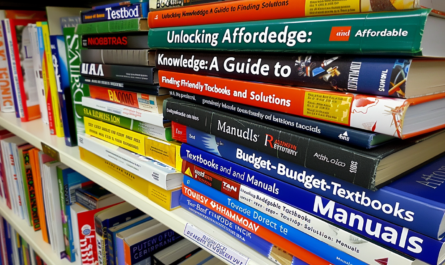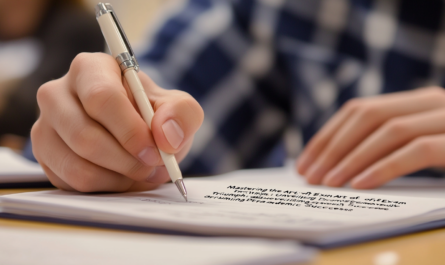Mastering the Art of Effective Study: Unveiling Game-Changing Techniques for College Students
College life is a whirlwind of new experiences, friendships, and academic challenges. As a college student, one of the most crucial skills you can develop is the art of effective study. While it may seem overwhelming at first, mastering this skill will not only enhance your academic performance but also set you up for success in your future endeavors. In this article, we will unveil some game-changing techniques that will help you become a master of effective study.
1. Create a Study Schedule: Time management is key when it comes to effective studying. Create a study schedule that allocates specific time slots for each subject or topic. This will help you stay organized and ensure that you cover all the necessary material. Be realistic with your schedule and allow for breaks to prevent burnout.
2. Find Your Ideal Study Environment: Everyone has different preferences when it comes to studying. Some students thrive in a quiet library, while others prefer the buzz of a coffee shop. Experiment with different environments to find the one that suits you best. Ensure that your study space is well-lit, comfortable, and free from distractions.
3. Take Effective Notes: During lectures or while reading textbooks, take concise and organized notes. Use abbreviations, symbols, and bullet points to capture key information. This will make it easier to review and revise later. Additionally, consider using different colors or highlighters to emphasize important points.
4. Utilize Active Learning Techniques: Passive reading and highlighting alone are not enough to truly understand and retain information. Instead, engage in active learning techniques such as summarizing the material in your own words, teaching it to someone else, or creating flashcards. These techniques require you to actively process and apply the information, leading to better comprehension and retention.
5. Break Down Complex Concepts: If you come across complex or challenging concepts, break them down into smaller, more manageable parts. Try to understand the underlying principles and connections between different ideas. Use visual aids like diagrams or flowcharts to help visualize and simplify complex information.
6. Practice Regularly: Regular practice is essential for effective studying. Solve practice problems, attempt sample questions, or take mock tests to reinforce your understanding of the material. This will not only help you identify areas that need improvement but also build your confidence in tackling similar questions during exams.
7. Form Study Groups: Collaborating with peers can be a powerful tool for effective studying. Join or form study groups where you can discuss and debate concepts, share resources, and quiz each other. Explaining concepts to others not only reinforces your own understanding but also exposes you to different perspectives and approaches.
8. Take Breaks and Prioritize Self-Care: While it may be tempting to pull all-nighters or study for long hours, it is important to prioritize self-care. Taking regular breaks, getting enough sleep, eating nutritious meals, and engaging in physical activity will help you maintain focus and retain information better. Remember, a healthy mind and body are essential for effective studying.
9. Seek Help When Needed: Don’t hesitate to seek help if you’re struggling with a particular subject or concept. Reach out to your professors, teaching assistants, or classmates for clarification or additional resources. Utilize tutoring services or academic support centers offered by your college. Asking for help is a sign of strength and shows your commitment to mastering the material.
10. Review and Reflect: Finally, make it a habit to review and reflect on your study sessions. Take a few minutes after each session to summarize what you’ve learned, identify areas that need further attention, and set goals for the next study session. Regular review and reflection will reinforce your learning and help you stay on track.
Mastering the art of effective study is a journey that requires patience, discipline, and perseverance. By implementing these game-changing techniques, you can take your studying to the next level and achieve academic success in college and beyond. Remember, effective studying is not just about the quantity of time spent, but also the quality of your approach. So, embrace these techniques, stay motivated, and watch your academic performance soar.



